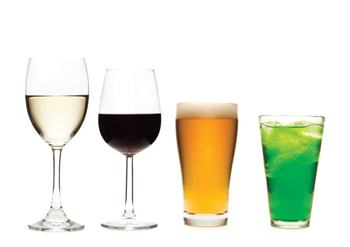
21 Jun Does Alcohol Affect Fat Loss?
Does Alcohol Affect Fat Loss?
In today’s day and age, alcohol has become some what of a staple in social gatherings. A way to let loose, unwind and escape reality. Most of us are aware of the addictive qualities of alcohol and the detrimental effects it has on the body with prolonged use. Alcohol abuse and alcoholism are prevalent issues plaguing today’s society. But that doesn’t seem to be stopping most drinkers. So what of weight loss and fat loss goals? How does alcohol fit in? Or doesn’t it? Let’s delve a little deeper.
But there aren’t any carbs in alcohol?
Alcohol has about 7 calories per gram. In comparison, one gram of protein or carb contains 4 calories and one gram of fat weighs in at 9 calories. So alcohol is almost double that of protein and carb and actually calorically closer to fat. But unlike these three macronutrients, alcohol holds no nutritional benefit. It’s void of any micronutrients, vitamins, and minerals. It literally does NOTHING to help your body or metabolism. However, despite it’s lack of nutrition, alcohol is actually processed first by the body. That’s right, your body will stop it’s absorption of fats and carbs for energy, and actually work to break down the alcohol first. This means, that carbs and fats from your food run a greater risk of being stored as fat.
If you look at the label of your favorite alcoholic beverage, you may not find it contains many or even any at all of the three macronutrients. But alcohols does contain calories, and contrary to popular belief, calories in booze do count. As we know, to lose weight, one must maintain a caloric surplus. Adding in copious amounts of calories from alcohol, affects this energy balance, which could lead to a stall in weight loss progress, or even weight gain. Furthermore, some fancy mixed drinks actually do contain fat, carbs, and sugar which spike insulin levels and lead to an increased risk of more fat storage.
What that Hangover Really Means
After a night of heavy drinking, you may experience feeling of nausea, fatigue, body aches and irritability. This is actually due to dehydration. You may feel bloated and puffy as a result. Alcohol can take up to 48 hours to be fully processed through the body, which means less of your stored glucose is being utilized. Most of us don’t feel like getting in a good sweat session when we feel so crummy, so the excess calories and toxins just sit in your gut as your liver and kidney work to filter these through your body. Overtime, the vitamins needed to properly filter the alcohol through your body, can become depleted, which leads to increased fatigue and lack of motivation.
How Alcohol Affects your Sleep
Alcohol is a well known as a depressant. When you drink, your brain increases its use of inhibitory receptors. With consistent consumption, these receptors get used to alcohol’s effects and require more and more to to feel the effects. However, these receptors are the same ones responsible for a good night’s rest. So by utilizing more of it to feel alcohol’s effects, less and less is left to ensure you get a restful night’s sleep.
As I have mentioned before, lack of sleep causes increased cortisol production, which is the body’s stress hormones. When this is hormone is elevated, fat loss halts as the body perceives a threat and works to shut down any processes not crucial for survival. Unfortunately for us, the ability to burn food into useable energy is not necessary for survival. In fact, during times of great stress, the body actually holds on to stored energy for use at a later time.
Loss of inhibitions
As it pertains to fat and weight loss, consuming alcohol can lead to a loosing of inhibitions. One drink turns into three or seven and before you know it, you’ve order fries slathered in queso dip and a whole pizza to yourself. As described earlier, your body processes the alcohol first, so all that greasy, calorically dense goodness, sit dormant in your stomach. And remember, what your body doesn’t use, it stores.
If You’re Going to Drink
As we have hit home time and time again, you need proper diet, training and sleep to achieve fat loss. I just described the negative affects alcohol has on diet (increased calories), training (decreased motivation and testosterone), and sleep (diminished sleep quality), but there are ways to lesson these affects. For starters, drink in moderation. I am talking one or two drinks weekly, or better yet bi-weekly.
If you do consume alcohol and want to “fit” this into your weight loss plan or macros, there is a way to do so. Since alcohol is processed similar to simple sugars, it behaves like a simple carb. So we track it as a carb and subtract from our daily carbohydrate macros. The way to do this is to take the calories in a certain alcohol. Using vodka as an example, 1 ounce has roughly 70 calories. To determine the carbs, we must use the conversion that 1g of carb = 4 calories. So here, 70 calories divided by 4 calories = 17g of carbs.
You would enter 17 for the carb count in 1 ounces of vodka.
You can see how quickly alcohol can add up and throw you into a caloric surplus!


